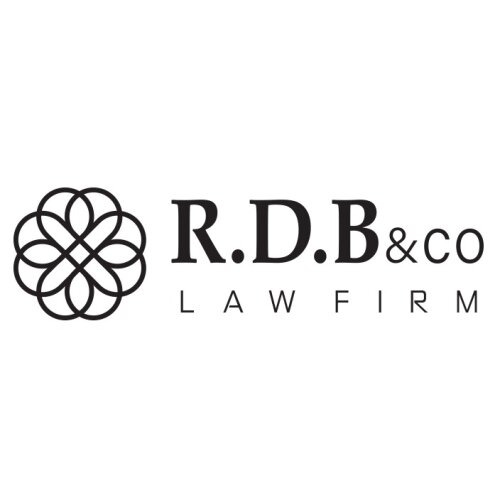Best Tax Increment Financing Lawyers in Petaẖ Tiqwa
Share your needs with us, get contacted by law firms.
Free. Takes 2 min.
List of the best lawyers in Petaẖ Tiqwa, Israel
About Tax Increment Financing Law in Petaẖ Tiqwa, Israel
Tax Increment Financing (TIF) is a public financing method that is used for subsidizing redevelopment, infrastructure, and other community-improvement projects. In Petaẖ Tiqwa, Israel, TIF seeks to stimulate private investment and economic growth in specified urban areas by capturing the future tax benefits of the increased property value resulting from the development and improvements within a designated district. It allows for the re-investment of incremental tax revenues generated within the district back into the district itself. This mechanism can be instrumental in advancing urban renewal and community development initiatives.
Why You May Need a Lawyer
Engaging a lawyer experienced in Tax Increment Financing can be beneficial for several reasons. If you're a property developer or a business owner looking to take advantage of TIF opportunities in Petaẖ Tiqwa, a lawyer can guide you through the complicated legal framework. Property owners and developers may encounter issues such as compliance with local regulations, drafting and negotiating development agreements, and understanding the financial implications of tax increment financing. Additionally, residents and community members might seek legal assistance if they have concerns about neighborhood changes or tax impacts resulting from TIF projects.
Local Laws Overview
In Petaẖ Tiqwa, Tax Increment Financing is governed by a combination of national and local regulations. Key aspects include the designation of TIF districts by local governments, the determination of public projects eligible for TIF funding, and the establishment of guidelines for private developer participation. Compliance with zoning laws and urban planning regulations is crucial. Furthermore, the calculation and allocation of tax increments must comply with established legal guidelines, ensuring that improvements benefit the community while being financially viable for local governments.
Frequently Asked Questions
What is the primary goal of TIF in Petaẖ Tiqwa?
The primary goal is to promote economic development and redevelopment in underdeveloped or economically challenged areas by reinvesting increased tax revenues locally.
Who is eligible to apply for TIF funds?
Primarily, developers and municipal authorities can apply for TIF funds to support eligible projects, including infrastructure improvements, housing, and community facilities.
How are TIF districts designated?
TIF districts are designated by local municipal authorities based on criteria such as the need for redevelopment and the potential for economic growth.
What types of projects can be funded by TIF?
TIF can fund a variety of projects, including improving public infrastructure, facilitating residential and commercial development, and enhancing community services.
Are there any limitations on the TIF usage?
Yes, funds must be used to benefit the TIF district, improve public infrastructure, and stimulate economic development according to local and national regulations.
How is the TIF increment calculated?
The tax increment refers to the additional tax revenues generated by the increased property values within the TIF district post-development, compared to an established baseline.
Can TIF affect my property taxes?
If you're a property owner within a TIF district, the value of your property may increase due to improvements, potentially impacting your property taxes.
What are the risks associated with TIF for developers?
Risks can include delays in project approvals, changes in local government policies, and potential financial shortfalls if projected tax increments are not realized.
How long do TIF districts typically last?
The duration of TIF districts can vary but generally ranges from 15 to 30 years, allowing ample time to achieve redevelopment goals and repay project costs.
Where can I find more information about active TIF projects?
Information is usually available through local municipal departments responsible for urban planning and development, as well as public records and community meetings.
Additional Resources
If you're seeking more information about Tax Increment Financing in Petaẖ Tiqwa, consider reaching out to government offices such as the Petaẖ Tiqwa Municipality's Department of Urban Planning. Additionally, contacting legal firms experienced in urban development and finance law can provide valuable insights. You might also explore academic publications and industry reports on TIF in Israel.
Next Steps
If you need legal assistance regarding Tax Increment Financing in Petaẖ Tiqwa, it’s advisable to first conduct preliminary research to understand your specific situation, then consult with a lawyer specializing in urban development and finance law. Consider scheduling consultations with multiple law firms to find an attorney who is well-versed in local regulations and has experience dealing with TIF-related matters. Ensure you have all pertinent documents and information organized before your consultation to facilitate a smooth, efficient process.
Lawzana helps you find the best lawyers and law firms in Petaẖ Tiqwa through a curated and pre-screened list of qualified legal professionals. Our platform offers rankings and detailed profiles of attorneys and law firms, allowing you to compare based on practice areas, including Tax Increment Financing, experience, and client feedback.
Each profile includes a description of the firm's areas of practice, client reviews, team members and partners, year of establishment, spoken languages, office locations, contact information, social media presence, and any published articles or resources. Most firms on our platform speak English and are experienced in both local and international legal matters.
Get a quote from top-rated law firms in Petaẖ Tiqwa, Israel — quickly, securely, and without unnecessary hassle.
Disclaimer:
The information provided on this page is for general informational purposes only and does not constitute legal advice. While we strive to ensure the accuracy and relevance of the content, legal information may change over time, and interpretations of the law can vary. You should always consult with a qualified legal professional for advice specific to your situation.
We disclaim all liability for actions taken or not taken based on the content of this page. If you believe any information is incorrect or outdated, please contact us, and we will review and update it where appropriate.









